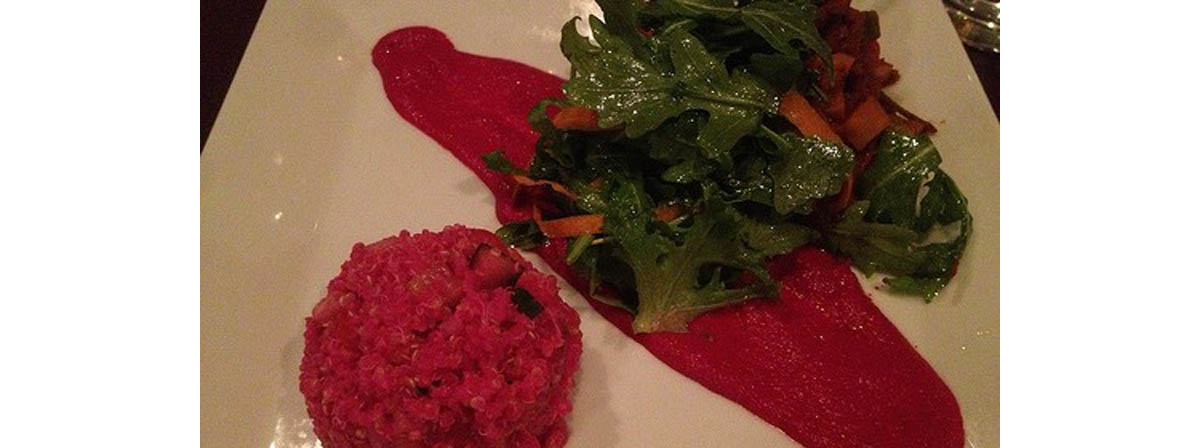Table of Contents
Mesothelioma is not the only kind of lung cancer, so later researchers looked for a cancer protective effect of various foods against the form of the disease known as adenocarcinoma. Epidemiologists at the Aichi Cancer Center Research Institute in Nagoya, Japan, found that eating more cooked fish, but not eating more dried fish, sushi, or sashimi, decreased the risk of this form of lung cancer.

In the Japanese study, however, eating more carrots was found to be associated with an increase in the risk of lung cancer. Looking at the data closely, however, the Japanese scientists discovered that for reasons they could not explain, more people who ate carrots also smoked cigarettes, or more cigarette smokers ate carrots, they could not tell which.
Researchers in Finland took the Louisiana study to heart, and in the Alpha-Tocopherol, Beta-Carotene Cancer Prevention Study, they gave out alpha-tocopherol (vitamin E) and beta-carotene supplements to smokers and non-smokers alike. When to their horror the researchers learned that smokers taking the supplements were dying at higher rates than smokers who did not, the study was abruptly canceled.
Contradictory Findings in Research Studies Abound
The Aichi Cancer Center Research Study also found that miso soup consumption was associated with increased rates of squamous cell carcinoma and small cell lung cancer in men, but not in women. A previous study by one of the same authors, however, found that miso soup consumption was associated with higher rates of lung cancer in both men and women.
The study of lung cancer and fish consumption in Japan found that eating fish tended to protect against lung cancer, but a study of lung cancer and fish consumption in China found that eating fish tended to increase the risk of lung cancer, at least in men. Similarly contradictory findings appear in studies of consumption of dairy products, green vegetables, and cabbage family vegetables.
So if you smoke, and you don't want to get cancer, what is the bottom line from scientific research?
What Smokers Can Do That Actually Does Reduce the Risk of Lung Cancer
If you are a smoker and you don't want to get lung cancer, the most effective--but probably hardest--thing for you to do is to quit.
And if you have a history of working with asbestos, whether you smoke or not, eating that carrot a week really is a good idea.
Otherwise, however, it's actually important not to take too many antioxidant supplements if you don't quit smoking. It is as if the combination of smoking and supplemental antioxidants produces imbalances that actually favor the development of cancer. If you smoke, until you quit, you probably should not take beta-carotene, vitamin A, or vitamin E at all.
It won't hurt you to have that serving of carrots once a week, either. But if you are going to add a second vegetable to your diet while you are still smoking, there is good evidence that one of the best possible choices is beets. A study of 2821 people who had lung cancer and 2923 people who did not at the MD Anderson Cancer Center in Houston, Texas found that of all the chemical constituents of everyday diet, betaine, found in beets and quinoa, offered the greatest protection against lung cancer, an approximately 30% lowering in risk. Just a serving of beets a week or a serving of quinoa every other week offers the amount of betaine found to be protective.
There is no magic bullet from the vegetable kingdom for preventing cancer. Eating too much of any food seems to make the problem even worse. But these three simple, inexpensive vegetable foods, carrot, beet, and quinoa, are the best to include in your diet to prevent cancer if you can't quit or choose not to quit smoking. These foods can't cure lung cancer once you have it, but eating them in small amounts even after a lung cancer diagnosis would probably help.
- Muscat JE, Huncharek M. Dietary intake and the risk of malignant mesothelioma. Br J Cancer. 1996 May.73(9):1122-5
- Takezaki T, Hirose K, Inoue M, Hamajima N, Yatabe Y, Mitsudomi T, Sugiura T, Kuroishi T, Tajima K. Dietary factors and lung cancer risk in Japanese: with special reference to fish consumption and adenocarcinomas. Br J Cancer. 2001 May 4. 84(9):1199-206.
- Ying J, Rahbar MH, Hallman DM, Hernandez LM, Spitz MR, Forman MR, Gorlova OY. Associations between dietary intake of choline and betaine and lung cancer risk. PLoS One. 2013.8(2):e54561. doi: 10.1371/journal.pone.0054561. Epub 2013 Feb 1. PMID: 23383301.
- Photo courtesy of cookbookman17 by Flickr : www.flickr.com/photos/cookbookman/6093275016/
- Photo courtesy of Conrad and Peter by Flickr : www.flickr.com/photos/conradpeter/9670913535/

